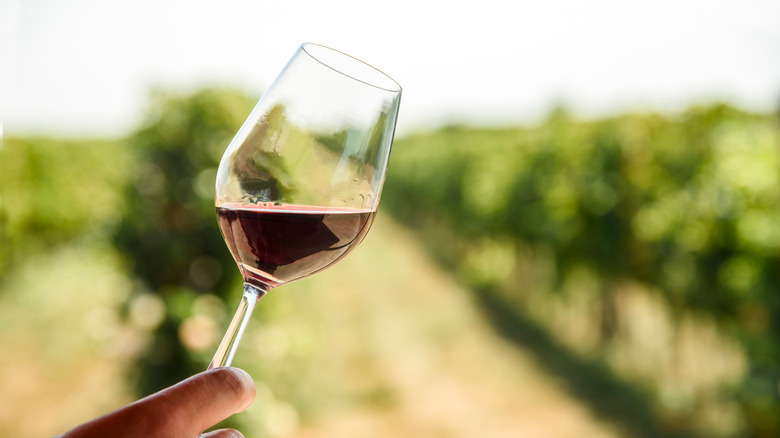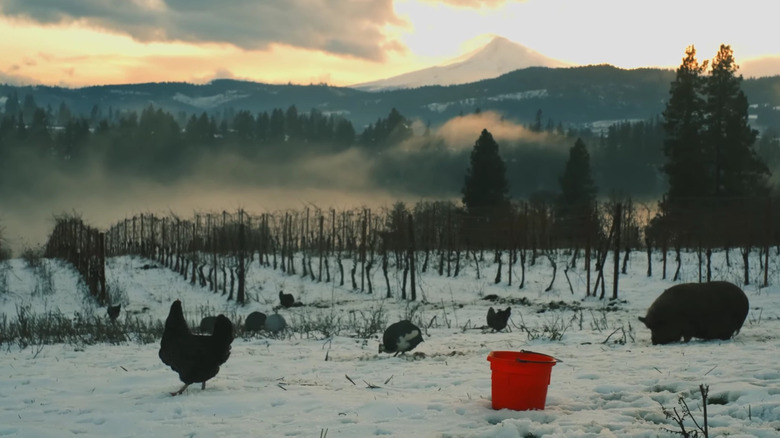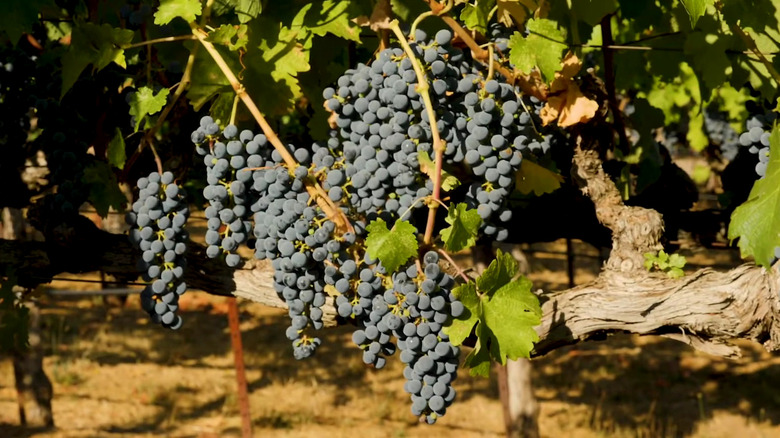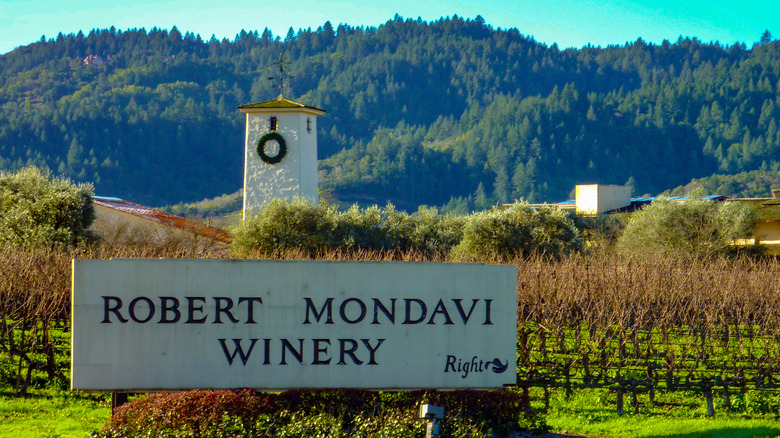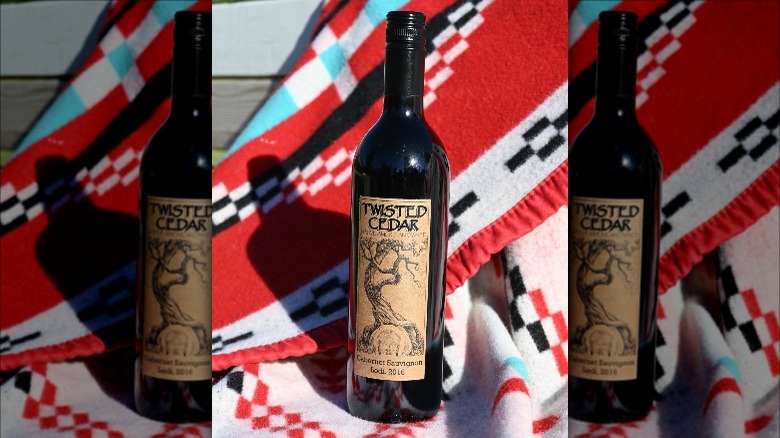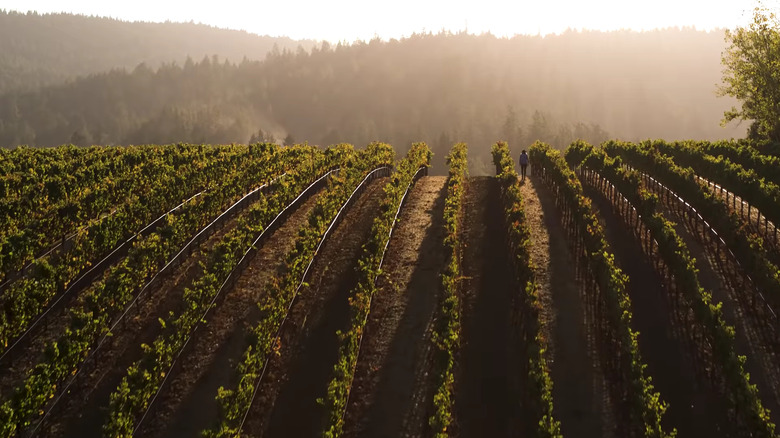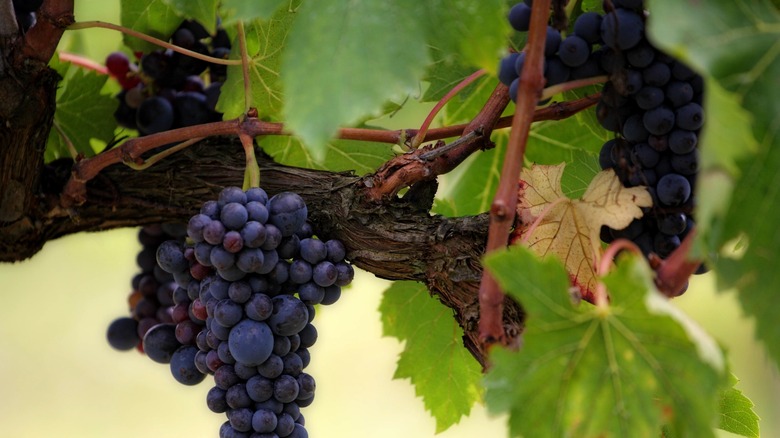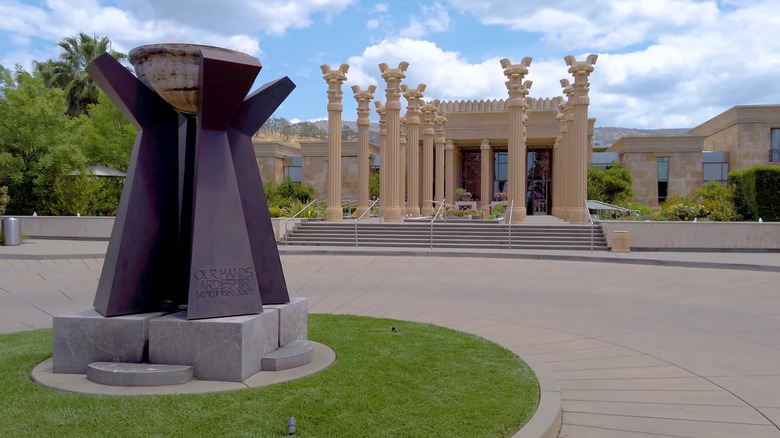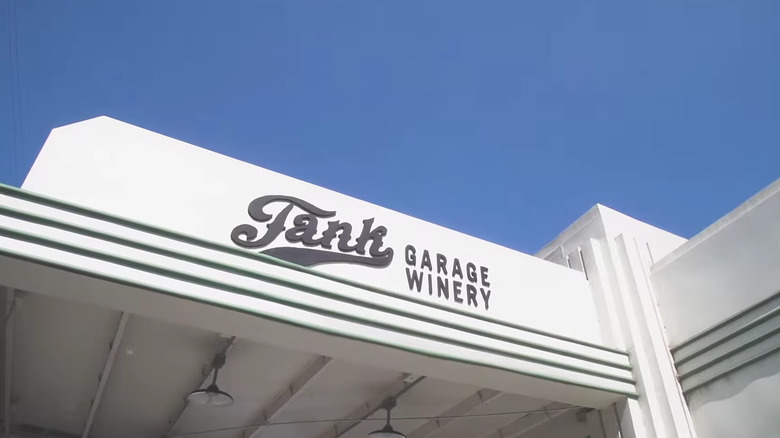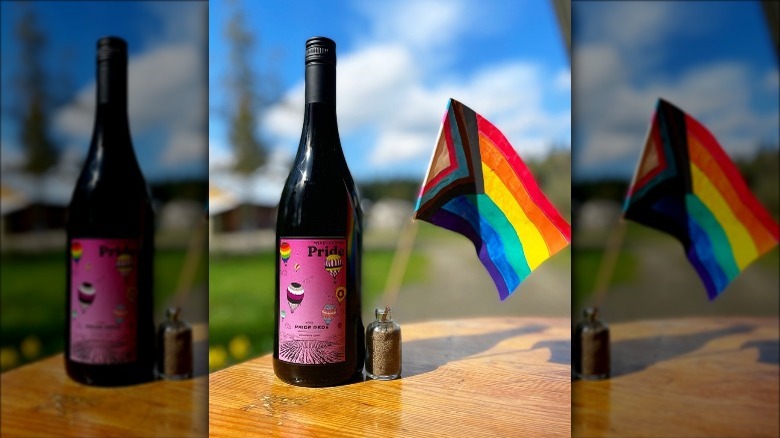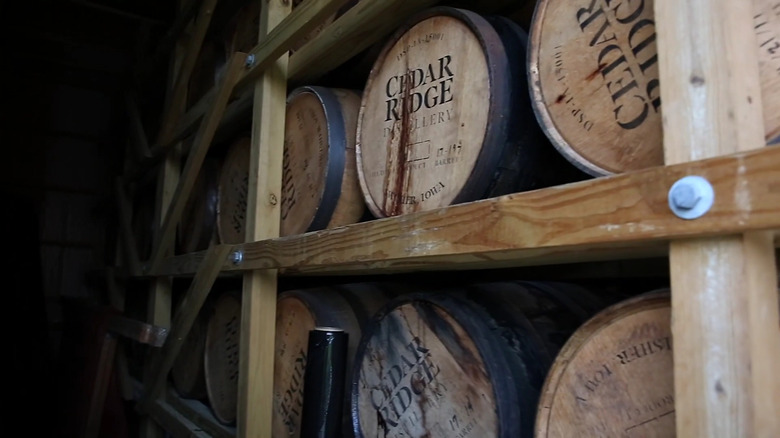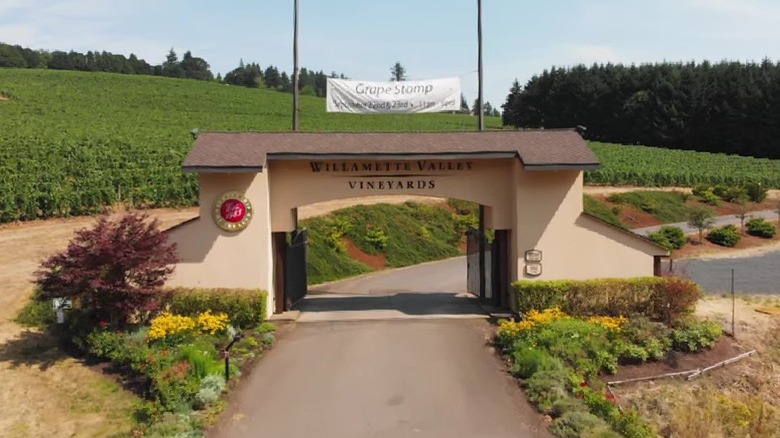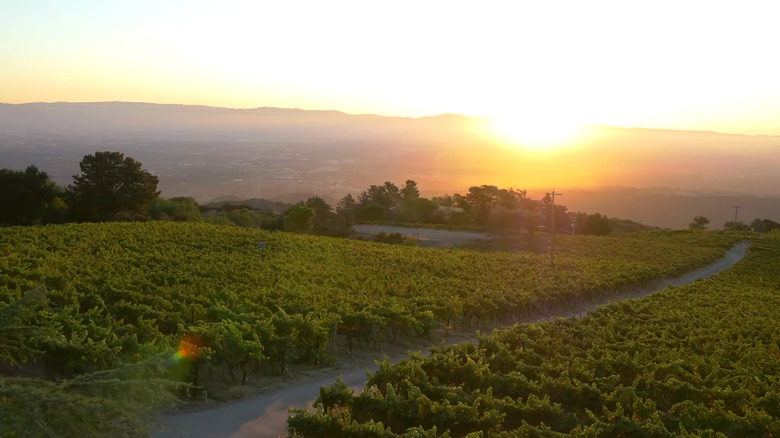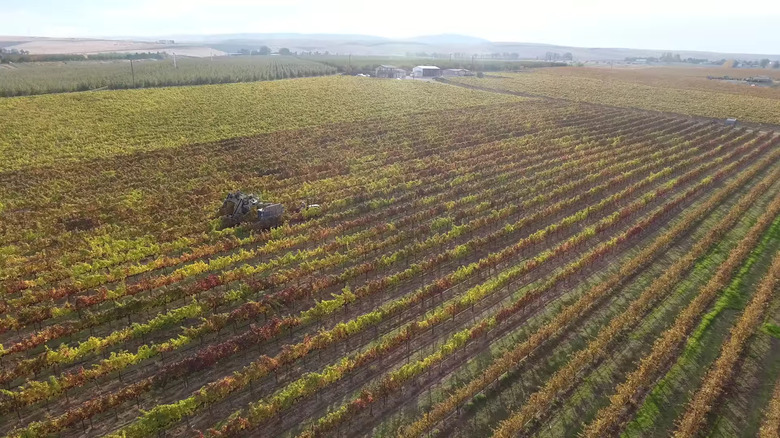13 Best Wineries In The US For 2022
The 1976 Paris Wine Tasting, now known as the Judgment of Paris, was a watershed moment for American wine, per Smithsonian. For the first time, Californian wines were rated higher than their most esteemed French counterparts during a blind taste test conducted by some of the world's most prestigious oenophiles. The shocking result announced American wine's arrival on the global stage and formed the basis of the country's now flourishing wine scene.
Wine of such a quality that it beats a Burgundy or Bordeaux is not created by chance, and it stands to follow that these great wines came from brilliant wineries. But whilst American wineries have undoubtedly gained prestige in the decades since the Judgment of Paris, many misconceptions still surround the American wine industry. Chief among these is that the country's great wineries are only found in California's famed Napa Valley, a notion reflected by the disproportionate attention the area receives in educational resources, such as the Wine and Spirits Education Trust's book "Understanding Wines," per Pix. Another misconception is that American wine is largely mass-produced, a belief which is only now beginning to be refuted (via Wine Searcher).
Both these commonly held beliefs could not be further from the truth. All across America, incredible wineries are producing fantastic wine, many utilizing artisanal, labor-intensive methods, thus proving that the Judgment of Paris was only the beginning of the story.
1. Hiyu Wine Farm
For too long Oregon has been overlooked by the wine world. This stands to change with the state receiving an increasing amount of positive exposure by industry titans such as The New York Times' wine critic, Eric Asimov. Perhaps one winery that has done more than any other to highlight the fantastic potential of Oregon is Hiyu Wine Farm, a winery that has been described by head winemaker Nate Ready as being a site of wild permaculture, via Jenny and François Selections.
As reported by Wine Business International, Hiyu Wine Farm has adopted this self-designation to describe their unique, hands-off approach to farming and oenology, where a careful balance of livestock, wildflowers, fungi, and vines all intermingle to create a balanced ecosystem. For example, the vegetation that envelopes all 80 grape varietals is kept in check by the array of animals that wander through the vineyards. Hiyu's holistic approach to wine production was inspired by the work of famous Japanese farmer Masanobu Fukuoka, according to Crystal City Wine Shop.
An equally simple approach to making wine is taken in the cellar, where they are fermented with natural yeast only, with the finished product being hand bottled. The resulting wines — which Asimov has likened to an Alpine meadow — can be enjoyed alongside food grown and prepared at Hiyu, in an experience that celebrates all aspects of Oregon's rich and bountiful natural environment.
2. Bedrock Wine Co.
California's Bedrock Wine Company takes a unique approach when it comes to wine production by prioritizing the vineyard above the finished product. This is because the winery has dedicated itself to the rehabilitation of 19th- and 20th-century Californian vineyards. For those at Bedrock, these vineyards are not just the place where grapes are produced but rather functioning historical sites that directly link the company's wines to products created more than 100 years ago.
Due to the number and range of vineyards used to create Bedrock's products, the wines vary greatly from vintage to vintage; however, there are some underlying themes. Generally, the reds are fruity with strong mineral tasting notes, as reported by Wine Enthusiast. By contrast, the whites are packed with citrus whilst maintaining a fresh and aromatic body.
A range of Bedrock's wines can be enjoyed via tasting sessions at the former house of Joseph Hooker, a Unionist General during the American Civil War. Hooker, along with fellow General William Sherman, planted a vineyard in 1854 that is also owned by Bedrock Wine Company. This provides tasters with a unique opportunity to savor wine made from Hooker's vineyard in the very house he lived in — a tantalizing prospect for any history buff.
3. Robert Mondavi Winery
Voted the best vineyard in North America in 2021 by World's Best Vineyards, Robert Mondavi Winery is a location known for its excellence. This should come as little surprise given that the founder, Robert Mondavi himself, was a vintner of epic renown, best known for inventing the so-called fumé blanc wine. That is, sauvignon blanc that has been aged in oak barrels to develop a distinct taste, as explained by Decanter. Yet, the 40th best winery in the world is known for so much more than just this innovative style of wine.
Perhaps the winery's biggest draw is the To Kalon Vineyard, which is widely recognized as one of the best Grand Cru vineyards in the world and undoubtedly stands as the jewel in the Mondavi crown (via Robert Mondavi Winery). The best wines made from this particular vineyard are known as the To Kalon Reserve tier, with the cabernet sauvignon vintages frequently receiving scores of 95+ from a range of publications and individuals. Credit for the current accolades falls to chief winemaker Geneviève Janssens, an industry stalwart who has won many prestigious accolades throughout her career with Robert Mondavi Winery, including Wine Enthusiast's Winemaker of the Year.
For those keen to sample Janssens' best work, the winery offers bespoke tasting experiences of the entire To Kalon portfolio. Other options include an Estates Collection tasting, which offers individuals the chance to try several wines from the Mondavi Winery's numerous other vineyards.
4. Twisted Cedar
Before its closure early this year, Kitá Wines was perhaps the best-known Indigenous-owned winery in the United States. However, it was far from the only one. In fact, Indigenous-owned wineries have become increasingly commonplace across North America and beyond due to an increase in demand, as explained by advanced sommelier Eric Crane: "People want to support brands they think are doing something important. The Native American wine category is a really exciting space to watch, not only because they connect with consumers who want to support environmental and Indigenous American causes, but because of shifting farming regulations that give Native Americans an advantage, in some ways, over conventional farmers" (per Wine Enthusiast).
The rise of Indigenous-owned wineries is typified by Twisted Cedar, a Southern Utah winery that is owned and run by the Cedar Band of Paiutes. As reported by Wine Enthusiast, Twisted Cedar produces 7,200 cases of wine, simultaneously providing an effective means of income for the Indigenous community and a high-quality product. Indeed, the cases are extremely sought after, and whilst conscious consumers undoubtedly play a part in the demand of Twisted Cedar, the driving force behind all the company's accolades is the wine itself. These being of indisputable quality, as attested to by the range of awards they have won.
5. Duckhorn Vineyards
Producing a wine that was awarded Wine Spectator's best wine of the year in 2017 is an incredible achievement. One that becomes all the more impressive when that wine is only the second ever merlot to win it. Yet, those who know Duckhorn Vineyards will not be surprised, as such is the reputation of this eminent Napa Valley winery.
Since the winery's founding in 1976, Duckhorn Vineyards has prioritized merlot, despite the grapes waning popularity within the United States. As explained by award-winning wine writer Jason Siegel in Pix, merlot's fall from grace was caused by a myriad of reasons. Yet, Duckhorn has proven time and again how this misconstrued grape can produce a stunning wine when handled correctly.
The winery's continued success has led to the original estate being expanded throughout Napa Valley, as noted by Decanter. Not all these vineyards are being used to grow merlot, with pinot noir, cabernet sauvignon, and chardonnay being amongst other varieties also being grown. All these grapes are expertly manipulated by head winemaker Renée Ary who has long held Duckhorn Vineyards and its holdings in high esteem, saying, "I am incredibly fortunate to work with some of Napa Valley's most exceptional grapes. There is no recipe or formula. My job is to let the vineyards speak and convey the soul of the wine" (per Duckhorn Vineyards).
6. Theopolis Vineyards
Founded by ex-attorney Theodora Lee in 2003, Theopolis Vineyards has produced several well-received vintages, including its very first in 2006, which scored between 94 – 96 points by one of the world's most influential wine critics, Robert Parker (via Theopolis Vineyards). This sensational scoring belies what was an extremely difficult start in the winery business for Lee. Speaking to Oprah Daily, Lee highlighted the struggles she faced transforming 20 hectares of farmland into a functioning vineyard: "That process was intensive, as I had to do soil digs, clear the land, and conduct land analysis to ensure the land was suitable for grape growing. Finally, in 2003, I planted my vineyard."
Lee not only uses the vineyards to produce award-winning wines — most notably petite sirah — but also as a means of diversifying the wine industry. As reported by Oprah Daily, Lee goes about this by annually providing one student studying viticulture or a related field at UC Davis with a $10,000 scholarship stating, "As one of the few African American women who own their own vineyard, I hope this fund will help diversify the wine industry [...] I want to assist students who may experience financial barriers in pursuing a career in the wine industry and vineyard management and ownership."
7. Darioush
There are few more impressive sights in the American winery world than Darioush. This winery and estate stands imposing and impressive, with the architecture and hospitality both speaking of the owner's Persian heritage, per Darioush.
The wine produced at Darioush is a combination of owner Darioush Khaledi's penchant for Bordeaux-style wines, viticultural consultant Steve Devitt's maxim of minimal intervention, and winemaker Hope Goldie's meticulous attention to detail. The results are sensational and include a range of premium wines that have long been lauded for their layered flavors and immense depth, as typified by their flagship cabernet sauvignon Darius II.
However, Darioush is not a one-trick pony when it comes to wine production. Rather, the estate, its owners, and employees have made a name for themselves by championing a grape that frequently goes under-utilized in Napa Valley, viognier. The championing of this grape was a challenge Darioush took up almost accidentally as explained by Khaledi to Nuvo: "It's a very difficult grape to grow here in Napa Valley. When we bought a second vineyard that had five acres of viognier, we thought it was too late to replant the viognier. I told Steve, let's harvest it and see what happens. Now, it's our most popular wine in the tasting room."
8. Tank Garage Winery
From the name to the appearance, it is clear that Tank Garage is not your average Napa Valley winery. This is exactly what founders James Harder and Jim Regusci wanted. Tank Garage Winery boasts a relaxed bar that has been constructed from the old garage's service bay. In this effortlessly cool setting, one can enjoy an exciting array of wines — nearly all of them blends — that were made at the winery's nearby industrial unit.
As highlighted by North Bay Biz, without exception the wines produced and sold at Tank Garage Winery are single batch only, meaning when they're sold out, that particular wine is gone forever. Aside from this limited-edition production approach the winery has also become known for its beautiful — and often profanity ridden — labels.
Another way Tank Garage Winery sets itself apart from other winemakers is through Tank Cares, a philanthropic side to the business, which sees a proportion of sales from special bottles of wine go towards a variety of causes. Food & Wine reports that Tank Cares initially came about as a means of supporting vineyards that had been affected by the 2017 wildfires. Since then, the charity has raised money for causes such as Black Lives Matter and the National Alliance of Mental Illness & Health, via Tank Garage Winery.
9. Remy Wines
As the owner of one of the most prominent LGBTQ+ wineries in Oregon, Remy Drabkin balances producing an array of fantastic wines with advocating for greater diversity in the wine industry (via Remy Wines). Drabkin achieves the former thanks to a childhood spent immersed in Oregon's wine scene. She achieves the latter through the founding of Wine Country Pride, a month-long celebration of the intersection between the LGBTQ+ community and Willamette Valley's wine-growing country, as per Wine Country Pride.
Under the umbrella of Remy Wines, there are three different labels: Remy Wines, Three Wives Wines, and Black Heart. The flagship label, Remy Wines, utilizes a distinctly Old-World approach by focusing on producing single-origin wines from a number of Italian grape varieties. This is typified by sensational wines such as the 2019 Kiona Vineyard Sangiovese, a wine that was celebrated by Great Northwest Wine.
Aside from producing a range of superb wines, Remy Wines offers a space for all communities to come together and enjoy the experience of sharing a glass with one another.
10. Cedar Ridge Winery
Established in 2000, the Iowa Wine Growers Association seeks to support the state's re-emerging wine sector as it continues to grow significantly. Amongst those leading the charge in this frequently overlooked wine-producing area is Cedar Ridge Winery. Voted the best winery in Iowa in 2018 by Taste of Home, Cedar Ridge has continued to impress by producing wines, such as La Crescent, an award-winning wine made from a grape varietal developed by the University of Minnesota, per Wine-Searcher.
The success Cedar Ridge has had with its wines comes as no surprise to those who are familiar with the brand's distillery, which has won multiple awards, including the American Distilling Institute's "2017 Distiller of the Year." The fact that Cedar Ridge Winery has its roots in the liquor business also goes some way in explaining its non-traditional nature. Instead of offering fine dining like some of its more formal counterparts, Cedar Ridge markets itself as a casual gathering place, with woodfired pizza on the menu and live music frequently on offer.
11. Willamette Valley Vineyards
As previously mentioned, Oregon is steadily carving a name for itself as a serious wine producer. One of the key grape varieties that has allowed it to do so is pinot noir, with notable publications, such as The New York Times, suggesting that Willamette Valley is one of the best locations in the world for the production of this wine. Willamette Valley Vineyards, one of the most prominent wineries in this area, states that the valley's ability to produce fantastic pinot noir stems from a climate that allows the grape a long growing period and historic floods that made the valley's soil extremely fertile.
This particular winery puts the valley's natural attributes to good use, producing award-winning pinot noir wines, such as the Bernau Block, which was awarded 90+ points by Wine Enthusiast, Savor Northwest, and noted wine critic James Suckling. Willamette Valley Vineyards has also experimented with whole cluster fermentation, whereby the grapes are pressed and enter the vat whilst still attached to their stems. As reported by Wine Folly, the inclusion of stems can affect the wine in many ways, supercharging its taste, structure, and aging qualities. Willamette Valley Vineyards' 2021 whole cluster pinot noir is a perfect example of the style, with this wine having a distinctly intense fruity flavor profile and a lusciously full body.
12. Ridge Vineyards
Since its founding in 1959, Ridge Vineyards has established itself as one of the world's best wine producers. Its reputation was built predominantly by Paul Draper, the winery's emblematic winemaker who retired in 2016 after 47 years working in the position, per Decanter. Both Draper and Ridge Vineyards rose to prominence thanks to their Monte Bello wine, which placed fifth at the aforementioned Judgment of Paris in 1976 (via Ridge Vineyards). The successive vintages of this cabernet sauvignon have been widely lauded, with The New York Times wine critic Eric Asimov labeling Monte Bello as America's finest wine made from this grape.
Draper and Ridge Vineyards are also known as integral parts of California's zinfandel revival, with one of their 100% zinfandel wines, East Bench, being served alongside the main course at President Barack Obama's final state dinner. This wine, as with all others produced at Ridge Vineyards, was made via means the winery calls "pre-industrial." This means limiting human interference during the winemaking process and allowing natural yeast and processes to largely dictate the outcome of the wine.
13. Barnard Griffin
The International Riesling Foundation highlights why the Yakima Valley in Washington State is highly suited to the production of riesling. Indeed, it was this grape that initially drew oenophiles' attention to Washington State (per Food & Wine). As reported by The New York Times, over the past few decades both Washington state's and Yakima Valley's wine has diversified with chardonnay, sauvignon blanc, and merlot grapes being widely planted. One winery that typifies this increasing variation is Barnard Griffin, a family-run business headed by married couple Rob Griffin and Deborah Barnard.
The wines produced at Barnard Griffin highlight the versatility of the Yakima Valley perfectly, with albariño, chardonnay, merlot, and syrah all making spectacular appearances. Many of these wines have been celebrated for their fruit-forward nature and incredibly accessible price tag — two features that many hope will continue to be prioritized as Megan Hughes, daughter of the founders and second-generation winemaker, steadily takes over the running of the winery.
